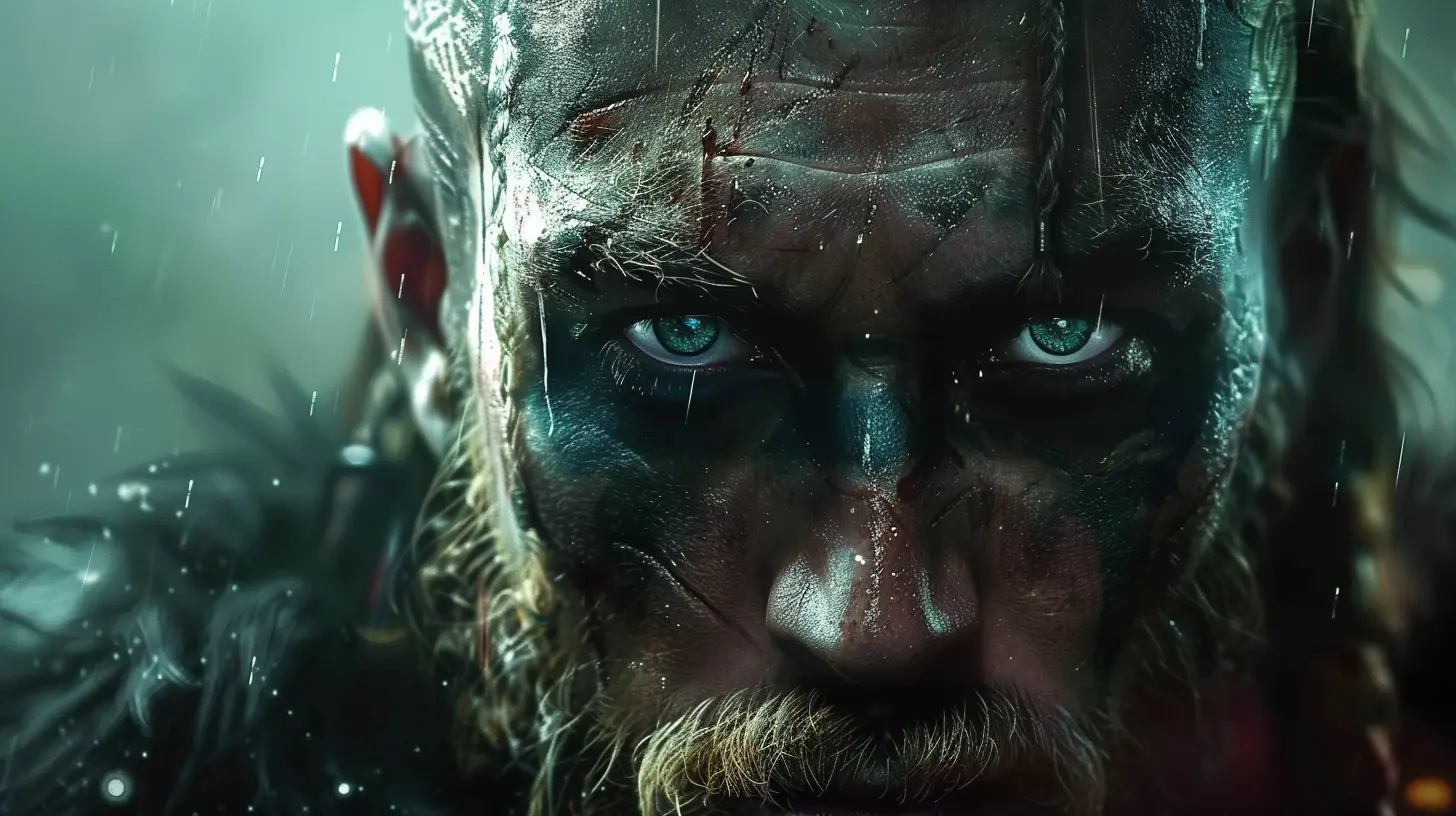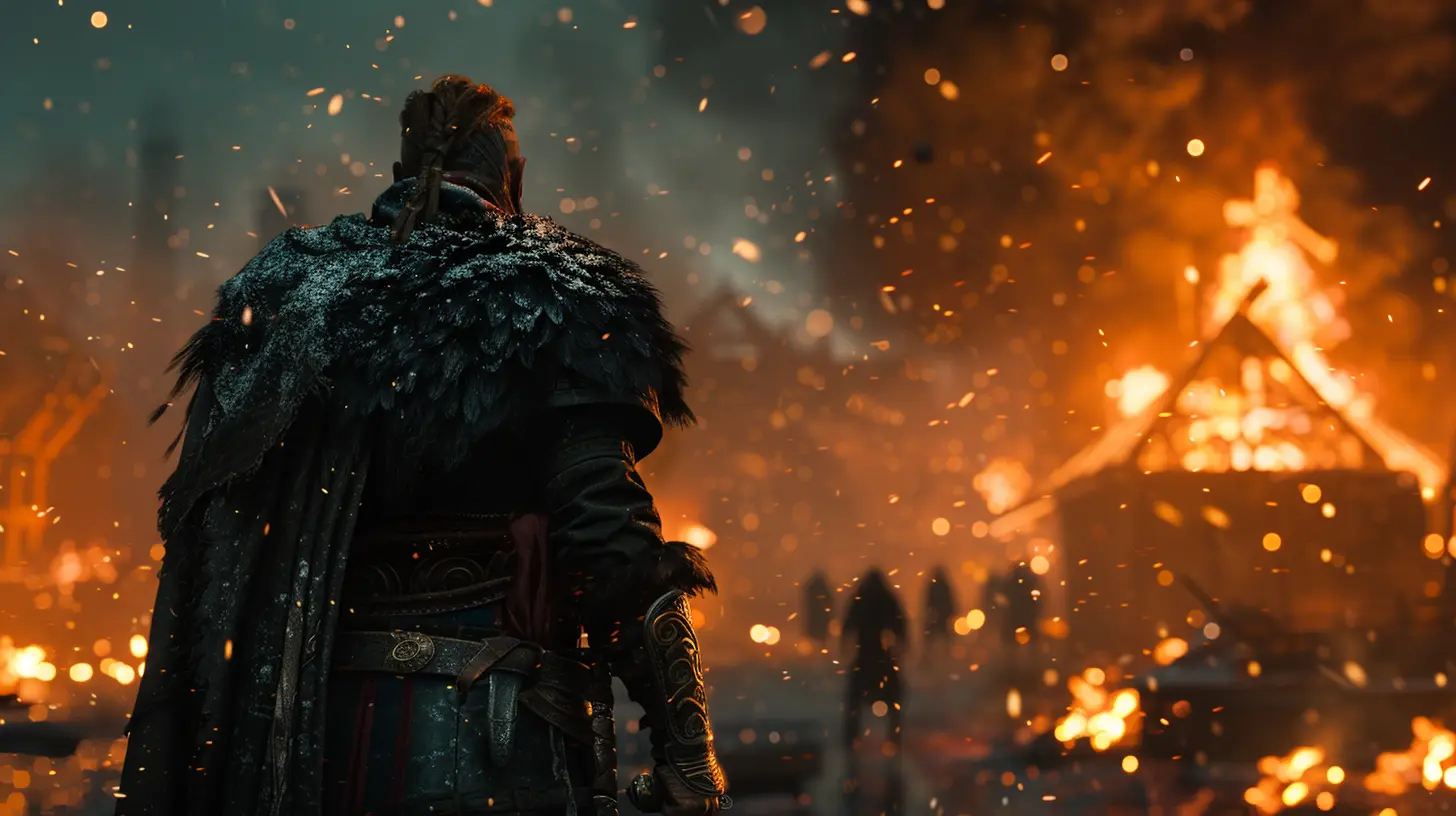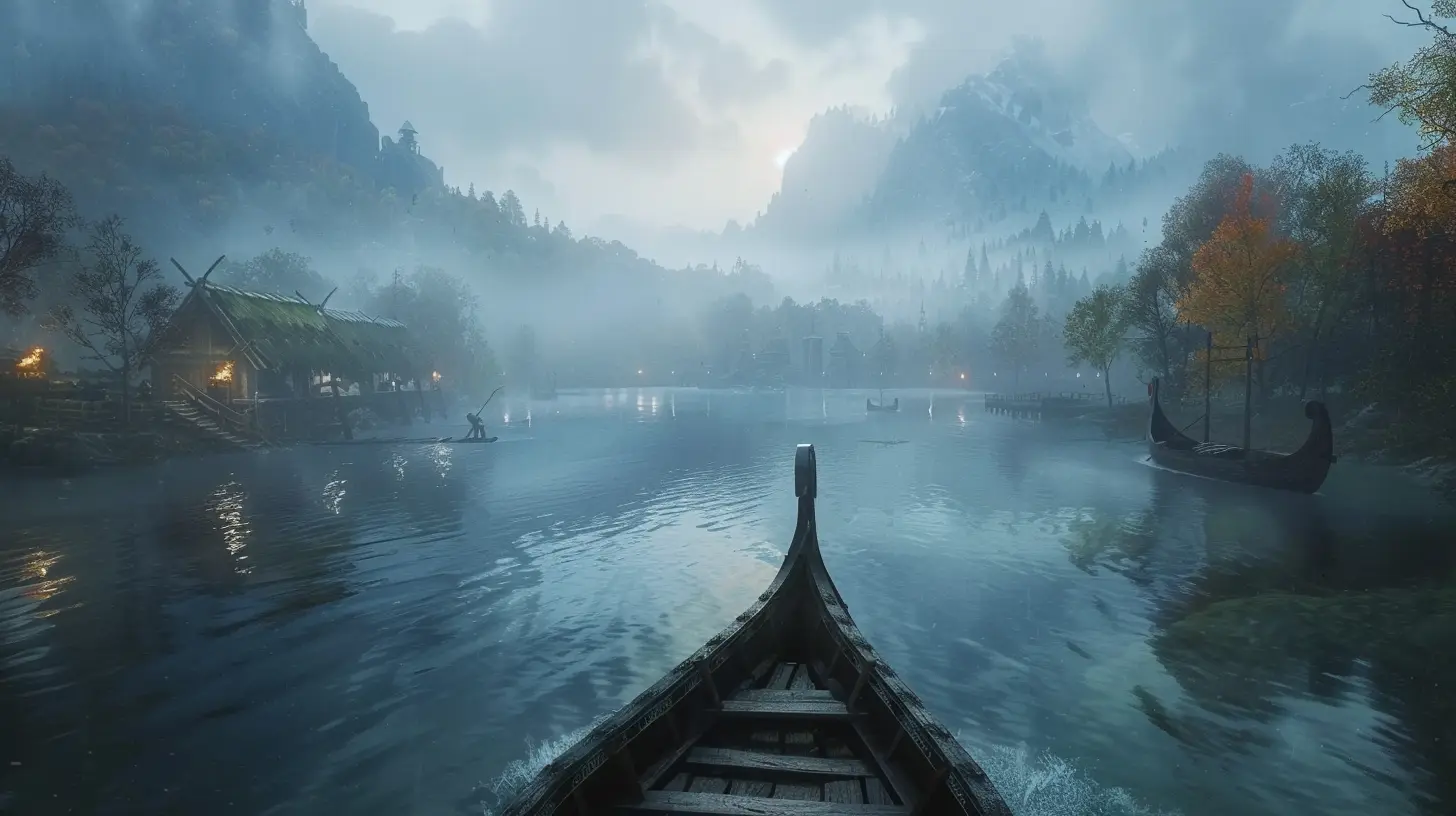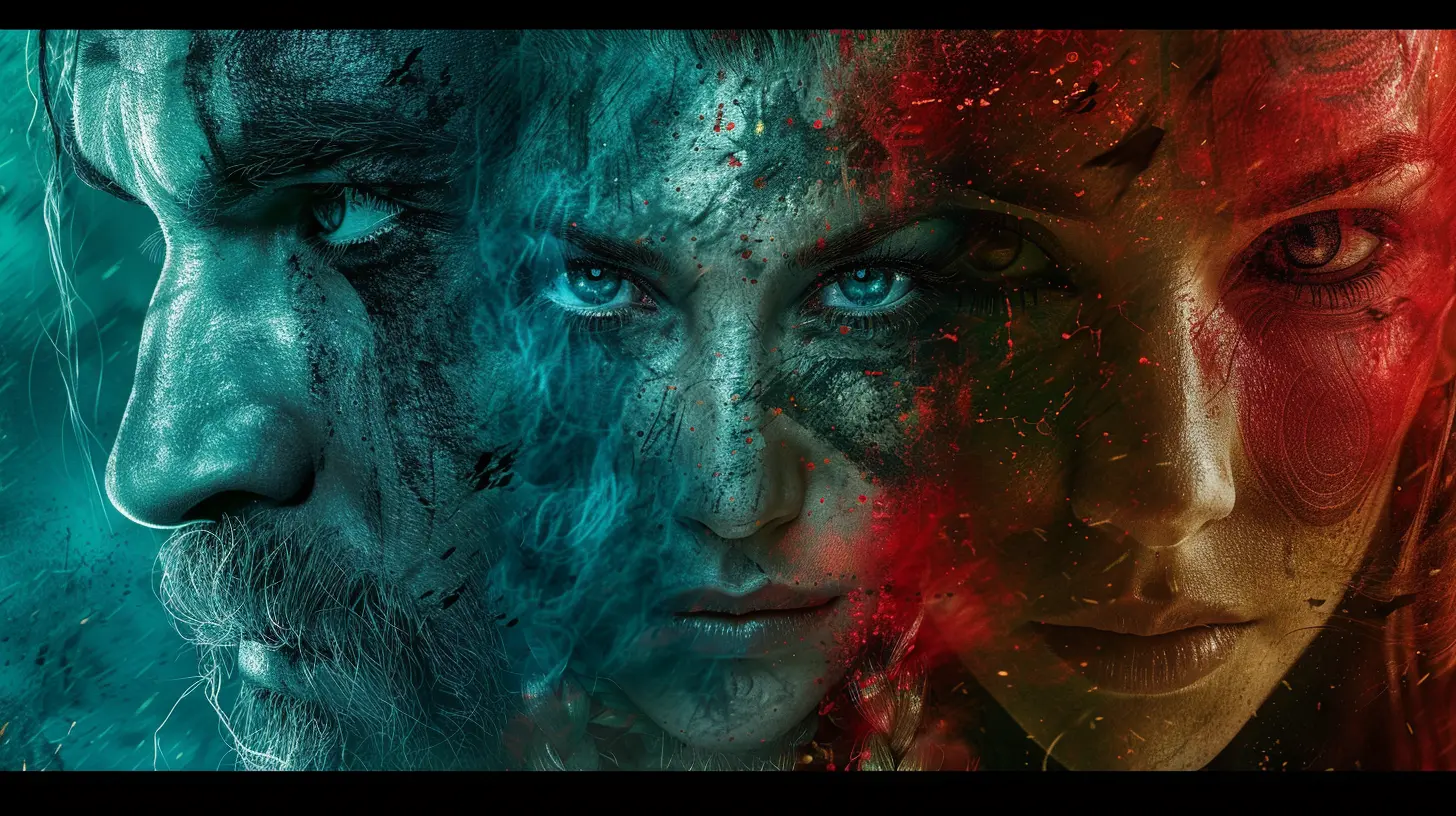Vikings, Gods, and Blood Feuds: The Story Behind Assassin’s Creed: Valhalla
18 December 2024
Let’s be real: there’s something irresistibly compelling about the Viking Age. The roaring longships, the thunderous clash of axes, and the larger-than-life myths of Norse gods all come together to create a period that feels both terrifying and awe-inspiring. Ubisoft clearly felt the same way when they crafted Assassin’s Creed: Valhalla, an epic adventure that plunges players into the heart of this brutal yet fascinating era. But what’s the real story behind the game? What inspired this massive, blood-soaked Viking saga, and how much of it is rooted in actual history or mythology? Let’s dive in. Grab your horned helmet (or don’t—it’s a myth, after all), and let the journey begin!
A Land of Ice, Fire, and Endless Feuds: The Historical Backdrop
First, let’s set the stage. Assassin’s Creed: Valhalla takes place during a pivotal period in history: the late 9th century. This was the age of Norse expansion. The Vikings, driven by hunger, ambition, and the promise of plunder, were sailing across the seas, leaving their mark—sometimes quite literally—with battle axes. This was the time of blood feuds, clan rivalries, and a fierce desire for survival.But what makes this era so compelling isn’t just the violence; it’s the clash of cultures. You’ve got the pagan Norse coming face-to-face with the more "civilized" Christian kingdoms of Anglo-Saxon England. And boy, was it messy. Think of it like oil meeting water—except the oil has a sword, and the water has a cross. This cultural friction is woven seamlessly into the game, as players navigate a world where loyalty and belief systems are constantly being tested.
Eivor: The Viking You Never Knew You Wanted to Be
Now let’s talk about the star of the show: Eivor. Whether you choose to play as a male or female Viking (because gender fluidity in video games is chef’s kiss), Eivor is a leader, a fighter, and, let’s be honest, a bit of a troublemaker. They helm a Raven Clan that’s looking to carve out a fresh start in England—a land that’s as ripe for opportunity as it is drenched in blood.But Eivor isn’t just about swinging axes and raiding monasteries, although there’s plenty of that to go around. They’re also deeply tied to Norse mythology, particularly to Odin, the All-Father himself. This connection between Eivor and Odin adds a layer of mysticism to the game, blurring the lines between history and myth. It’s like Ubisoft handed you a history book and then dunked it in a barrel of mead with a dash of the supernatural. And honestly? We’re here for it.
Norse Mythology: Gods, Monsters, and a Healthy Dose of Chaos
Okay, let’s pause for a second and talk about Norse mythology. It’s wild. Unlike Greek myths, which are often about lessons or morals, Norse myths are chaotic, unpredictable, and, frankly, a little nihilistic. The gods aren’t immortal. The end of the world—Ragnarök—is inevitable. It’s like a cosmic soap opera where everyone’s kind of doomed, but they’re still trying their best.Ubisoft sprinkles these mythological elements throughout Assassin’s Creed: Valhalla. Players can explore legendary locations like Asgard and Jotunheim through powerful visions, meet iconic figures like Thor and Loki, and even wield weapons like Thor’s hammer, Mjolnir. They’ve essentially taken the tapestry of Norse mythology and woven it into the gameplay, which is a dream come true for mythology nerds like me (and probably you, since you’re reading this).
But don’t worry—it’s not just a mythology lesson. The game makes it feel personal. Eivor’s visions of Odin, for example, aren’t just for show; they reflect the character’s internal struggles, the weight of leadership, and the brutality that comes with Viking life. It’s storytelling at its finest: larger-than-life yet deeply human.
Blood Feuds and Brotherhood: The Heart of Viking Life
At its core, Assassin’s Creed: Valhalla isn’t just about gods and glory—it’s about people. Viking society was built on tight-knit communities, loyalty to your clan, and, yes, the occasional feud that spilled a little blood. Okay… a lot of blood.The game nails this aspect of Viking culture. From forging alliances with other clans to dealing with betrayals, the idea of loyalty is front and center. And let’s not forget the settlement-building aspect. Eivor’s Ravensthorpe settlement isn’t just a gameplay mechanic—it’s a reflection of the Viking spirit. These warriors weren’t just pillagers; they were settlers and builders, too. They sought not just to destroy but to create, to carve out a place for themselves in an unforgiving world.
And then there’s the blood feud element. Oh, it’s juicy. The game's narrative dives deep into this concept, with rivalries and vendettas that make Game of Thrones look tame. It’s not just about who has the sharpest blade—it’s about who can outwit, outlast, and out-loyal their enemies. Think of it like chess, but with way more decapitations.
The Gameplay: A Viking’s Toolkit for Chaos
Let’s be honest—half the fun of Assassin’s Creed: Valhalla is the gameplay. It’s satisfying, brutal, and oh-so-Viking. Whether you’re storming a castle or sneaking through the shadows, the game lets you approach every scenario in a way that fits your playstyle.Want to be stealthy like a true Assassin? Go for it. Want to charge in with a battle-cry and dual-wield axes like a maniac? Absolutely. The combat system is flexible, visceral, and just plain fun. Oh, and don’t even get me started on the raids. There’s nothing quite like rowing up to a monastery, sounding your war horn, and letting chaos unfold. It’s cathartic, in the most Viking way possible.
But it’s not all about combat. The game also offers a sprawling open world that’s begging to be explored. From the rolling hills of England to the stunning fjords of Norway, the environments are breathtaking. And with mysteries to solve, treasures to plunder, and side quests that range from serious to downright goofy (looking at you, “flyting” battles), there’s always something to keep you busy.
The Accuracy Question: History vs. Fiction
Now, let’s tackle the big question: how accurate is Assassin’s Creed: Valhalla? The short answer? It’s a bit of both. Ubisoft has done a fantastic job of grounding the game in historical details, from the architecture to the political landscape of 9th-century England. But they’ve also taken some liberties, especially when it comes to the mythology and Eivor’s supernatural experiences. And honestly, I’m fine with that.After all, the game isn’t trying to be a history textbook. It’s trying to tell a great story. And by blending historical accuracy with mythological flourishes, it creates an experience that feels immersive, engaging, and, most importantly, fun. Who wouldn’t want to fight alongside Odin or explore the mysteries of Asgard while sailing the rivers of England?
Why Valhalla Stands Out in the Franchise
So, what sets Assassin’s Creed: Valhalla apart from other games in the series? For starters, it masterfully balances the old and the new. While it retains the stealth and parkour elements that made the franchise famous, it also leans heavily into RPG mechanics, offering players more choices than ever before. Want to focus on diplomacy over combat? You can do that. Want to romance NPCs and live your best Viking love life? Go for it.Plus, the game’s focus on myth and legend adds a fresh twist. While previous titles like Origins and Odyssey dabbled in mythology, Valhalla goes all in, making it feel like a story that’s as much about gods and destiny as it is about history. It’s a bold move, and it pays off.
Conclusion: A Viking Saga Worth Telling
At the end of the day, Assassin’s Creed: Valhalla is more than just a game. It’s a love letter to the Viking Age, a tribute to Norse mythology, and an exploration of what it means to lead, to fight, and to carve out your place in the world. Whether you’re a die-hard Assassin’s Creed fan or someone who just loves all things Viking, there’s something here for you.So, what are you waiting for? Boot up your console, channel your inner Eivor, and get ready to conquer England—or at least die trying. Skål!
all images in this post were generated using AI tools
Category:
Lore And StorylinesAuthor:

Stephanie Abbott
Discussion
rate this article
10 comments
Callie Hodge
Assassin's Creed: Valhalla intertwines history and myth, urging us to reflect on the cyclical nature of violence and honor. What legacy will we carve through our own stories?
February 2, 2025 at 5:03 PM

Stephanie Abbott
Thank you for your insightful comment! Valhalla indeed compels us to ponder our choices and their impact on legacy, blending history with the profound questions of honor and violence.
Samira Velez
Great insights! Excited to explore Valhalla's rich narrative.
January 26, 2025 at 5:30 AM

Stephanie Abbott
Thank you! I’m glad you found it insightful—Valhalla has an incredible story to uncover! Enjoy the journey!
Sandra Price
Loved this deep dive into Valhalla's rich lore! Can’t wait to explore the world myself!
January 18, 2025 at 5:58 PM

Stephanie Abbott
Thank you! I'm glad you enjoyed the lore - Valhalla is an incredible world to explore! Happy gaming!
Fenris McKinstry
Who knew that pillaging and blood feuds could be so much fun? Assassin’s Creed: Valhalla proves that even in the Viking Age, family reunions were just as chaotic—only with more axes and fewer awkward conversations!
January 15, 2025 at 5:41 PM

Stephanie Abbott
Absolutely! Valhalla captures the chaotic spirit of the Viking Age, blending family drama with thrilling adventures. It's a wild ride filled with axes and epic tales!
Chase Dillon
Valhalla intertwines history and myth, challenging our perceptions of heroism and valor in a world shaped by vengeance and fate.
January 10, 2025 at 3:59 PM

Stephanie Abbott
Thank you! Valhalla indeed blurs the lines between history and myth, prompting us to reconsider traditional notions of heroism in a turbulent world.
Abigail Moses
Who knew Norse mythology could be so badass? Assassin’s Creed: Valhalla takes us on a wild ride through Viking chaos, gods, and epic feuds. If you’re not ready to raid with style and stab your way through history, are you even living? Let’s go, Valhalla awaits!
January 4, 2025 at 5:15 AM

Stephanie Abbott
Glad you’re excited! Valhalla really captures the intense spirit of Norse mythology and Viking lore. Get ready for an epic adventure!
Thalia Cummings
Wow, this article really dives deep into the rich lore of *Assassin’s Creed: Valhalla*! It’s fascinating to see how Vikings and Norse mythology intertwine with the game’s narrative. I can’t wait to explore those epic blood feuds and encounter the gods in my next play session!
January 1, 2025 at 4:15 PM

Stephanie Abbott
Thank you! I'm glad you enjoyed the deep dive into the lore. Exploring the rich interplay of Viking culture and Norse mythology truly enhances the game experience. Happy gaming!
Fenn Clayton
History's echoes shape our virtual battles and identities.
December 23, 2024 at 6:05 PM

Stephanie Abbott
Absolutely! History profoundly influences our narratives, shaping both our virtual experiences and the identities we forge within them.
Aisha Coleman
Discover the shadows where legends intertwine; Valhalla whispers secrets only the bravest dare to uncover.
December 19, 2024 at 3:42 PM

Stephanie Abbott
Thank you! Valhalla truly is a captivating realm where history and myth converge, inviting players to explore its many secrets.
Kai Snyder
Assassin’s Creed: Valhalla masterfully intertwines Norse mythology with personal and political conflict, creating a rich narrative tapestry. However, while the game excels in atmospheric immersion and historical detail, it occasionally sacrifices character depth, leaving some key figures feeling one-dimensional amidst its sprawling world of exploration and conquest.
December 19, 2024 at 5:29 AM

Stephanie Abbott
Thank you for your insightful comment! I agree that while "Assassin's Creed: Valhalla" excels in its world-building and immersive atmosphere, it sometimes struggles with character development, resulting in a mix of rich narratives and less explored figures. Your perspective adds valuable depth to the discussion!
MORE POSTS

Crafting Meaningful Endings: Why Player Decisions Matter

How to Teach Complicated Board Games to New Players

Community-Driven Content: The Future of Player-Created Worlds

The Hidden History of the Covenant in Halo’s Expansive Universe

Puzzle Games That Will Challenge Your Reflexes as Much as Your Mind

Casual Gamers vs Hardcore Gamers: Why Everyone Wins

Puzzle Games with Storylines as Gripping as Their Gameplay